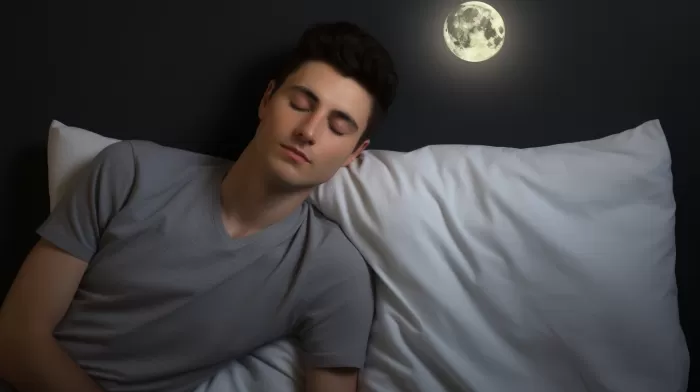The connection between a full moon and sleep disruption has long been debated, with some believing that individuals experience sleep difficulties during a full moon. Recently, a study in Germany dug deeper into this phenomenon and uncovered some interesting insights into the relationship between the moon and our sleep patterns.
What the Research Discovered
The study unmasked a link between a full moon and increased activity in the brain’s cortex. The cortex is the outer layer of the brain, responsible for initiating action and thought processes. The most notable connection revealed by the study was that the full moon appeared to mostly disturb men’s sleep.
During the full moon phase, participants in the study slept approximately 20 minutes less than on average, and they reported more trouble falling asleep. However, the largest impact on REM (rapid eye movement) sleep was observed during the new moon. REM sleep, which typically occurs periodically throughout the night and accounts for about 20% of our total sleep time, is when we experience vivid dreams.
Is Nocturnal Light to Blame?
Interestingly, the researchers conducted their study in a sleep lab without windows, ensuring that the sleep disruptions they observed couldn’t be attributable to additional nighttime light during a full moon. Rather, their findings suggest that there might be a biological clock influenced by the lunar cycle, similar to the circadian rhythm that regulates our sleep-wake patterns.
While this study provides valuable insights, it is important to note that researchers have not reached any definitive final conclusions. For instance, one of the main findings reveals a stronger likelihood of noises waking you up during a full moon compared to other moon phases, but the reasons for this remain unconfirmed.
How to Counter Sleep Problems During a Full Moon
If you find yourself struggling with sleep during a full moon, consider trying the following helpful strategies:
1. Exercise: Engage in ample physical activity during the day to ensure you feel tired when bedtime arrives. Be cautious about exercising too close to bedtime, as physical activity can also increase alertness, making it harder to fall asleep.
2. Diet: Pay attention to what you eat and drink during the day, and consider incorporating sleep-promoting foods and natural sleep aids into your daily routine. Melatonin is an antioxidant that the body naturally produces and regulates our sleep-wake cycles. Supplementation can help encourage sleep. Alternatively, you can consume a food source rich in melatonin, such as tart cherry juice, an hour before bedtime.
3. Create a conducive sleep environment: Ensure your bedroom is cool, dark, and quiet to create optimal conditions for sleep. You can use earplugs, blackout curtains, or an eye mask if you find that your sleep remains sensitive to external factors. Additionally, using relaxing scents like lavender can potentially help induce a sense of calm to encourage restful sleep.
4. Practice a relaxing bedtime routine: Develop a bedtime routine that encourages relaxation, such as reading, taking a warm bath, or practicing gentle stretches.
5. Stick to a consistent sleep schedule: Going to bed and waking up at the same time every day—regardless of weekends and holidays—will help reinforce your body’s natural sleep-wake processes.
In Conclusion
Though the influence of the moon on sleep patterns remains a topic of ongoing research, and the specific causes have yet to be conclusively identified, there is evidence suggesting that a full moon can disrupt sleep for certain individuals. By implementing strategies that promote healthy sleep habits, you can help counter any sleep problems that may arise during a full lunar cycle, ultimately ensuring a better night’s rest.



